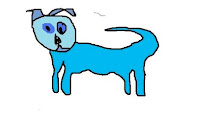As for myself, I was on my bedroom floor that morning most undramatically exercising when my wife called to tell me that something was happening. By then, TV cameras were already focused on the first punctured tower and, remembering tales of the B-25 that had hit the Empire State Building in 1945, I assumed I was watching a horrifying accident. Another friend, a rare North American who remembered the first 9/11 -- that day in 1973 when Salvador Allende, the Chilean president, was overthrown and murdered in a U.S.-backed military coup -- thought it might be Chilean payback.
Any half-plausible idea was, for a while, possible. History hadn't set. The Bush administration, in disarray, hadn't yet hijacked the day or the country. September 11th, still being lived, hadn't been renamed "Patriot Day." There was, as yet, no Department of Homeland Security, no Patriot Act. No one had been rounded up. No wars had been launched.
As for New Yorkers, those of us not making our way out of -- or into -- the danger zone were on the phone checking on loved ones, listening to rumors, or outside in the streets, talking to each other, wondering while the sirens wailed. It was a memorably terrible moment, but not, in fact, a nightmare of fear; nor would New York ever, as far as I could tell, find itself in the grip of blind revenge as, it seemed, so much of the country would soon be. Not so long after 9/11, for instance, two New Yorkers I know -- one had been close indeed to the collapsing towers -- headed for Afghanistan, not armed to kill but to help.
I remember my own now-embarrassing first reaction to 9/11 (once I grasped what was actually happening). It was unexpectedly dense and unprophetic, given the American reaction to come. I thought, then, that perhaps the horror of those acts of destruction and mass murder in my own city would open Americans to the sort of pain so many others in the world had felt -- sometimes, in fact, at our own hands. It might, I thought, change our politics. It did, of course, do that, but in no way I imagined. And that was the strange, unexplained thing for me: it seemed as if living at "ground zero" during the assaults of 9/11 somehow made you the worst predictor of what our nation would feel and do.
For me, even today, an especially unnerving aspect of 9/11 was the way so many Americans donned "I [heart] New York" T-shirts and hats -- New York having, until then, been Sodom to Los Angeles's Gomorrah for much of the country -- and under the Bush administration's fear-filled ministrations, began beating the drums of war, while panicking over prospective terrorists launching improbable attacks on their local amusement parks and landmarks. It seemed craven to me then and still does today.
Eight disastrous years later, I suddenly understand that day so much better, thanks to Rebecca Solnit, whom 9/11 indirectly sent my way offering hope in dark times. Now, she's returned with her latest book, A Paradise Built in Hell: The Extraordinary Communities That Arise in Disaster
, which capsizes our most basic sense of what disaster is all about, humanly speaking. As befits an author who has written a guidebook to getting lost, she is bold beyond belief and her originality matches that boldness. And here's the thing: if you take a journey into disaster with her (9/11 being but one of the many disasters she explores in the book), you won't get lost. You'll find yourself. You'll find ourselves, our better selves, even in catastrophe.
Think of Paradise as the perfect companion volume to Naomi Klein's The Shock Doctrine. Klein explained how governments try to take advantage of disasters to optimize their power and wealth (and that of their cronies); Solnit explains what ordinary people in disasters regularly do for themselves. They don't, as we have been taught, run screaming from danger. They head for the smoke, pedaling hard, and then, without the help of governments, they begin to organize. They become, briefly, their better selves. So here's a thought: Maybe it was the lack of the actual experience of 9/11 that left the rest of America so vulnerable when the Bush administration led them toward their lesser selves.
Read Rebecca Solnit's essay on Tomdispatch.com





